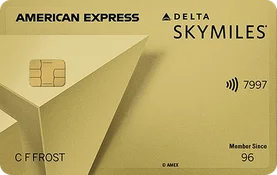Introduction:
Credit cards can be powerful financial tools, offering convenience, rewards, and other benefits. However, credit card issuers have certain guidelines in place to manage risk and determine eligibility for their cards. One such rule is the 5/24 rule, which has gained significant attention in recent years. In this post, we will delve into the details of the 5/24 rule, how it works, and its impact on credit card applications.
What is the 5/24 Rule?
The 5/24 rule is a guideline employed by Chase, a prominent credit card issuer, to evaluate credit card applicants. Under this rule, if an individual has opened five or more new credit card accounts within the past 24 months, their application for certain Chase credit cards may be automatically denied. This 5/24 rule aims to target customers who exhibit responsible credit behavior and manage their credit accounts judiciously.
Purpose and Rationale:
Chase implemented the 5/24 rule as a risk management strategy. By scrutinizing an applicant’s credit card history, the rule helps identify individuals who are more likely to use and maintain their credit cards responsibly. From an issuer’s perspective, customers with excessive recent credit card applications may pose a higher risk due to factors such as potential debt accumulation or a higher likelihood of default.

Related: A Beginner’s Guide to Points and Miles
Applicability:
It’s important to note that the 5/24 rule specifically applies to certain Chase credit cards. Other credit card issuers may have their own eligibility criteria and guidelines. Therefore, if you’re planning to apply for credit cards from different issuers, it’s essential to research further and understand each company’s specific policies.
How the 5/24 Rule Works:
When assessing an applicant’s eligibility, Chase considers the number of credit card accounts you have opened within the last 24 months. If an applicant has opened five or more credit card accounts during that period, their application for specific Chase credit cards is likely to be automatically declined. It’s important to note that the rule applies to both personal and business credit card accounts.

Exceptions and Considerations:
While the 5/24 rule is generally rigid, there are a few exceptions and additional factors to consider. For instance, Chase typically includes most credit cards, regardless of the issuer, in their count of accounts opened. However, certain accounts, such as authorized user accounts, may or may not be counted against the 5/24 threshold. Additionally, some Chase co-branded credit cards may have different rules and exceptions, so it’s crucial to review the specific terms and conditions of each card.
Managing the 5/24 Rule:
If you’re interested in obtaining Chase credit cards affected by the 5/24 rule, it’s important to be mindful of your credit card application history. To improve your chances of approval, consider spacing out your applications and being selective about the cards you apply for. Keeping track of your credit card accounts and their opening dates will help you stay within the 5/24 threshold.

In Conclusion:
The 5/24 rule is an important consideration when applying for certain Chase credit cards. By understanding this guideline, you can navigate the credit card application process more effectively and make informed decisions about when and which cards to apply for.
Remember to stay updated on the specific policies of credit card issuers to smoothen your chances of approval.










2 Responses
[…] Related: The 5/24 Rules of Credit Cards […]
[…] Related: The 5/24 Rules of Credit Cards […]